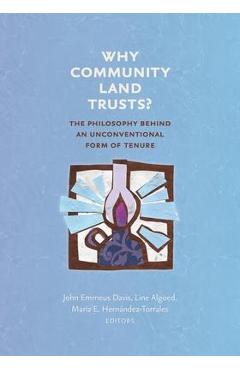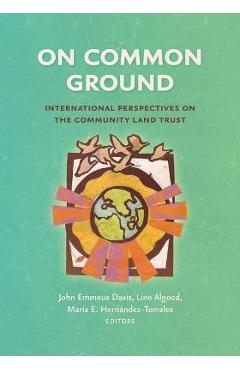Why Community Land Trusts?: The Philosophy Behind an Unconventional Form of Tenure - John Emmeus Davis

Detalii Why Community Land Trusts?: The
libris.ro
69.75 Lei
77.5 Lei
Political Science
John Emmeus Davis
Why Community Land Trusts?: The - Disponibil la libris.ro
Pe YEO găsești Why Community Land Trusts?: The de la John Emmeus Davis, în categoria Political Science.
Indiferent de nevoile tale, Why Community Land Trusts?: The Philosophy Behind an Unconventional Form of Tenure - John Emmeus Davis din categoria Political Science îți poate aduce un echilibru perfect între calitate și preț, cu avantaje practice și moderne.
Preț: 69.75 Lei
Caracteristicile produsului Why Community Land Trusts?: The
- Brand: John Emmeus Davis
- Categoria: Political Science
- Magazin: libris.ro
- Ultima actualizare: 28-10-2025 01:22:05
Comandă Why Community Land Trusts?: The Online, Simplu și Rapid
Prin intermediul platformei YEO, poți comanda Why Community Land Trusts?: The de la libris.ro rapid și în siguranță. Bucură-te de o experiență de cumpărături online optimizată și descoperă cele mai bune oferte actualizate constant.
Descriere magazin:
The community land trust (CLT) is a transformative strategy of community-led development on community-owned land that is taking root across the Global North and is now spreading to the Global South. CLTs produce and preserve affordably priced homes, retail spaces, urban (and rural) aglands, and a variety of neighborhood facilities - all developed under the auspices of people who live nearby; all managed to remain permanently affordable for people of modest means. Because of the way these assets are owned and because of the way these organizations are governed, CLTs offer new answers to fundamental questions of who decides? and who benefits? that should be asked whenever governments, charities, or NGOs invest scarce resources in improving the places where people live. CLTs are not all alike. Among the hundreds that exist in a dozen different countries, there are numerous variations in how these organizations are structured, how their lands are utilized, how development is done, and how assets are stewarded for future generations. What is called a community land trust can vary greatly from one locality to another. Despite this lack of uniformity, advocates and practitioners have advanced a consistent set of arguments in favor of this strategy. Their multi-faceted case for the CLT says, in essence: When land is owned for the common good of a place-based community, present and future; when development is done by an organization that is a creature of that community, rooted in it, accountable to it, and guided by it; when stewardship is deliberate, diligent, and durable . . . development is more likely to be both equitable and sustainable, especially in places populated by classes and races who have long been disadvantaged and disempowered. The six essays contained in this monograph are drawn from a lengthier volume entitled On Common Ground: International Perspectives on the Community Land Trust. Most of that volume\'s twenty-six chapters were focused on describing conditions, organizations, and polices that precipitated the appearance of CLTs in a range of urban and rural settings. But a number of chapters also looked closely at the philosophy behind this unconventional approach to real property, exploring various ethical, political, and practical justifications for the CLT. These essays were selected for the present monograph. Together, they provide a coherent and compelling The community land trust (CLT) is a transformative strategy of community

Produse asemănătoare

Why Community Land Trusts?: The Philosophy Behind an Unconventional Form of Tenure - John Emmeus Davis
![]() libris.ro
libris.ro
Actualizat in 28/10/2025
69.75 Lei
Produse marca John Emmeus Davis

Why Community Land Trusts?: The Philosophy Behind an Unconventional Form of Tenure - John Emmeus Davis
![]() libris.ro
libris.ro
Actualizat in 28/10/2025
69.75 Lei

On Common Ground: International Perspectives on the Community Land Trust - John Emmeus Davis
![]() libris.ro
libris.ro
Actualizat in 28/10/2025
167.4 Lei

Reweaving the Tapestry of Tenure: Eight Elders of the CLT Movement Who Championed Community Ownership of Land - John Emmeus Davis
![]() libris.ro
libris.ro
Actualizat in 18/03/2025
108.81 Lei
